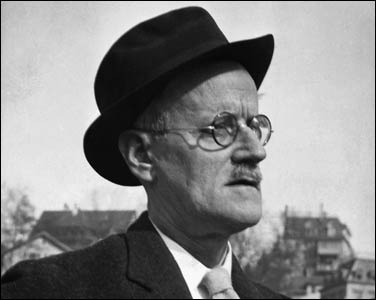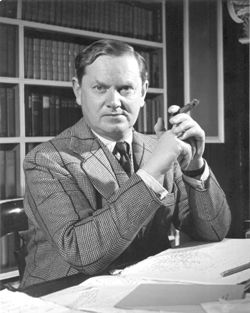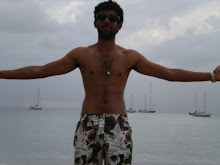,
Nobel's choice of emphasis on "idealistic" or "ideal" (in English translation) in his criteria for the Nobel Prize in Literature has led to recurrent controversy. .In the early twentieth century, the Nobel Committee interpreted the intent of the will strictly and did not award certain world-renowned authors of the time such as Henry James, Leo Tolstoy, Mark Twain, Emile Zola, Anton Chekov and Henrik Ibsen .More recently, the wording has been interpreted more liberally. Since there was a reason , albeit a exceedingly poor one, for exclusion of these authors this list only refers to more recent authors who were snubbed (i.e writers who died after 1920).
Nobel's choice of emphasis on "idealistic" or "ideal" (in English translation) in his criteria for the Nobel Prize in Literature has led to recurrent controversy. .In the early twentieth century, the Nobel Committee interpreted the intent of the will strictly and did not award certain world-renowned authors of the time such as Henry James, Leo Tolstoy, Mark Twain, Emile Zola, Anton Chekov and Henrik Ibsen .More recently, the wording has been interpreted more liberally. Since there was a reason , albeit a exceedingly poor one, for exclusion of these authors this list only refers to more recent authors who were snubbed (i.e writers who died after 1920).
(This list will be biased towards writers who wrote in English or French. Or whose works have been translated into those languages. There are many writers in other languages who are likely to have deserved a Nobel, but a lack of comprehension of those languages makes the judging of their works impossible. Obviously, only works which are still in print or available in libraries can be read and considered)
in no particular order:
12. Khalil Gibran


in no particular order:
12. Khalil Gibran

major works : The Prophet, The Madman, Secrets of the Heart, al-Ajniha al-Mutakassira
Considered to be the third most widely read poet in history behind Shakespeare and Lao-Tzu. There are still copies of The Prophet being released by new publishing companies. Gibran merged the classical and the new like no other author. His work was deeply based in mysticism and religion and remain some of the most inspirational poetry and poetic essays of the Twentieth Century. There is no other poet who impacted on popular perception in recent times as he did
11. Joseph Conrad

Major Works: Lord Jim, The Secret Agent, Nostromo, Heart of Darkness
Joseph Conrad is still widely read today, both for pleasure and in the classroom. His novels were written at the height of the British empire and deal with the topics of a world empire as well as the effects on the human psyche. One of the most complete and lyrical writers of prose of 20th Century English Literature, the term prose poet is especially applicable.
"Naipaul is Conrad's heir as the annalist of the destinies of empires in the moral sense: what they do to human beings. His authority as a narrator is grounded in the memory of what others have forgotten, the history of the vanquished.". That quote was used by the Nobel Institute when announcing the selection of V.S. Naipaul as a Nobel Prize winner. It is obvious then that the Nobel institute realizes the importance of Joseph Conrad but they still somehow neglected to award him the prize.
10. Jorge Luis Borges

Major Works: Labyrinths; The Book of Sand;Ficciones
For at least twenty year Borges was at the forefront of the literary world and was widely believed to be a candidate for the prize for several years. It is believed that the Nobel committee refused to give him the award because of his open support of right-wing dictators, Augusto Pinochet the most prominent. The major debate here is that the Nobel institute regularly awarded the prize to supporters of left wing dictators, such as the case of Pablo Neruda who was a supporter of Josef Stalin. Politics shouldn't be a factor in deciding a literary prize, especially deciding between right and left.
9.Vladimir Nabokov

Major Works: Speak, Memory ;Lolita ;Pale Fire
A highly influential writer, first in his native language Russian and then in English. Novels such as Lolita shaped not only the literary world but also seeped into everyday use. Also wrote several volumes of criticism and translated many works into Russian. He was nominated in 1974 but lost in a travesty of a decision to Eyvind Johnson and Harry Martinson, who were both Nobel judges and completely unknown outside of their own countries. Nabokov's novels are still widely read today while it is close to impossible to even find a copy of any book by Harry Martinson or Eyvind Johnson .
8.James Joyce

Major works: Ulysses; Dubliners; A Portrait of the Artist as a Young Man; Finnegan's Wake
A pioneer of the literary form, Joyce's novels reshaped the entire way in which people saw that a novel could be written. Works such as Finnegan's Wake helped to develop the concept of speculative fiction, while Ulysses was a landmark in the stream of consciousness writing style. An influence on writers as diverse as Samuel Beckett, Salman Rushdie, Jose Luis Borges and Flann O'Brien, his writing shaped modern literature.
Even more confusing is the fact that the prize was awarded to T.S. Elliot in 1948. Elliot was especially known for his poem, The Waste Land, which has many structural relations as well as similar motifs, so much so that Joyce referred to the poem as a derivation of his work.
7.W. H. Auden

Major Works: Poems; The Orators;Funeral Blues
A major 20th century poet, his style influenced almost all modern poets.Especially those writing in the English language. Still incredibly popular today (which is not something most live poets can claim), "Funeral Blues" &"September 1, 1939" still turn up in movies and radio broadcasts.
It is believed that he was ignored for the prize because of errors in his translation of 1961 Peace Prize winner Dag Hammarskjold "Vagmarken" and because of statements he made suggesting Hammarskjold was a homosexual (like Auden).
It seems harsh to be denied because of translation mistakes and being wrong about someone's sexual preference.
6.Graham Greene

Major Works: The Heart of the Matter; The Quiet American;The End of the Affair
Greene was one of the most widely read novelist of the 20th-century, a superb storyteller. Adventure and suspense are constant elements in his novels and many of his books have been made into successful films. His works are noted for their leanness and their realism. His descriptions, though empty of embellishment, still retain cinematic sense.
Some attributed this to his being too populist a storyteller, others to the rumour that he had cuckolded a prominent member of the selection committee. The second reason is widely popular but remains unconfirmed and is likely to remain that way.Greene himself believed he was always one vote short of the prize, withheld by one judge, who disliked his Catholicism and left-wing sympathies, and "who seemed determined to outlive him".
5.Salman Rushdie

major works: Midnight's Children, Shame, Haroun and the Sea of Stories, The Satanic Verses
The novelist by which every Indian writer writing in English is measured by. Also one of the most controversial writers alive today, due to the fatwa imposed on him by Ayatollah Khomeini. Strictly speaking, since he's still alive he could still win.
In 1997 Rushdie was tipped to win the award. However the award went to Dario Fo, primarily a performer. The Nobel committee were quoted as saying the choice of Rushdie would have been " too predictable, too popular". Apparently the Nobel committee are convinced that if a writer is popular that means automatically that they cannot win a Nobel prize.
4.Arthur Miller

3. Evelyn Waugh


11. Joseph Conrad

Major Works: Lord Jim, The Secret Agent, Nostromo, Heart of Darkness
Joseph Conrad is still widely read today, both for pleasure and in the classroom. His novels were written at the height of the British empire and deal with the topics of a world empire as well as the effects on the human psyche. One of the most complete and lyrical writers of prose of 20th Century English Literature, the term prose poet is especially applicable.
"Naipaul is Conrad's heir as the annalist of the destinies of empires in the moral sense: what they do to human beings. His authority as a narrator is grounded in the memory of what others have forgotten, the history of the vanquished.". That quote was used by the Nobel Institute when announcing the selection of V.S. Naipaul as a Nobel Prize winner. It is obvious then that the Nobel institute realizes the importance of Joseph Conrad but they still somehow neglected to award him the prize.
10. Jorge Luis Borges

Major Works: Labyrinths; The Book of Sand;Ficciones
For at least twenty year Borges was at the forefront of the literary world and was widely believed to be a candidate for the prize for several years. It is believed that the Nobel committee refused to give him the award because of his open support of right-wing dictators, Augusto Pinochet the most prominent. The major debate here is that the Nobel institute regularly awarded the prize to supporters of left wing dictators, such as the case of Pablo Neruda who was a supporter of Josef Stalin. Politics shouldn't be a factor in deciding a literary prize, especially deciding between right and left.
9.Vladimir Nabokov

Major Works: Speak, Memory ;Lolita ;Pale Fire
A highly influential writer, first in his native language Russian and then in English. Novels such as Lolita shaped not only the literary world but also seeped into everyday use. Also wrote several volumes of criticism and translated many works into Russian. He was nominated in 1974 but lost in a travesty of a decision to Eyvind Johnson and Harry Martinson, who were both Nobel judges and completely unknown outside of their own countries. Nabokov's novels are still widely read today while it is close to impossible to even find a copy of any book by Harry Martinson or Eyvind Johnson .
8.James Joyce

Major works: Ulysses; Dubliners; A Portrait of the Artist as a Young Man; Finnegan's Wake
A pioneer of the literary form, Joyce's novels reshaped the entire way in which people saw that a novel could be written. Works such as Finnegan's Wake helped to develop the concept of speculative fiction, while Ulysses was a landmark in the stream of consciousness writing style. An influence on writers as diverse as Samuel Beckett, Salman Rushdie, Jose Luis Borges and Flann O'Brien, his writing shaped modern literature.
Even more confusing is the fact that the prize was awarded to T.S. Elliot in 1948. Elliot was especially known for his poem, The Waste Land, which has many structural relations as well as similar motifs, so much so that Joyce referred to the poem as a derivation of his work.
7.W. H. Auden

Major Works: Poems; The Orators;Funeral Blues
A major 20th century poet, his style influenced almost all modern poets.Especially those writing in the English language. Still incredibly popular today (which is not something most live poets can claim), "Funeral Blues" &"September 1, 1939" still turn up in movies and radio broadcasts.
It is believed that he was ignored for the prize because of errors in his translation of 1961 Peace Prize winner Dag Hammarskjold "Vagmarken" and because of statements he made suggesting Hammarskjold was a homosexual (like Auden).
It seems harsh to be denied because of translation mistakes and being wrong about someone's sexual preference.
6.Graham Greene

Major Works: The Heart of the Matter; The Quiet American;The End of the Affair
Greene was one of the most widely read novelist of the 20th-century, a superb storyteller. Adventure and suspense are constant elements in his novels and many of his books have been made into successful films. His works are noted for their leanness and their realism. His descriptions, though empty of embellishment, still retain cinematic sense.
Some attributed this to his being too populist a storyteller, others to the rumour that he had cuckolded a prominent member of the selection committee. The second reason is widely popular but remains unconfirmed and is likely to remain that way.Greene himself believed he was always one vote short of the prize, withheld by one judge, who disliked his Catholicism and left-wing sympathies, and "who seemed determined to outlive him".
5.Salman Rushdie

major works: Midnight's Children, Shame, Haroun and the Sea of Stories, The Satanic Verses
The novelist by which every Indian writer writing in English is measured by. Also one of the most controversial writers alive today, due to the fatwa imposed on him by Ayatollah Khomeini. Strictly speaking, since he's still alive he could still win.
In 1997 Rushdie was tipped to win the award. However the award went to Dario Fo, primarily a performer. The Nobel committee were quoted as saying the choice of Rushdie would have been " too predictable, too popular". Apparently the Nobel committee are convinced that if a writer is popular that means automatically that they cannot win a Nobel prize.
4.Arthur Miller

Major works: Death of a Salesman,The Crucible ,A View from the Bridge
The most influential American playwright of the last century, helped by his continually being in the public eye. As The writer of The Crucible he was one of the first to openly criticize the Communist hunts going on in America after the Second World War which he likened to the Salem Witch Hunts of the 1600s. His plays are still performed around the world to this day, usually to packed theaters.
Arthur Miller was also seen as a strong candidate for the 1997 Nobel Prize and it was believed that the award would either go to him or Salman Rushdie. The Award went to Dario Fo, who was more shocked than anyone stating "I am flabbergasted.". The Nobel Institute went against the popular decision, making the criteria for winning the Prize even more confusing.
3. Evelyn Waugh

Major Works: Scoop, A Handful Of Dust, Brideshead Revisited, Vile Bodies
The funniest English writer of the twentieth century. No one wrote satires as well as he did. Capable of serious works as well and part of the writers who brought travel writing into public perception as a viable literary form. Was widely popular during his lifetime. Created many innovations in his writing which have become the norm today, such as writing entire chapters in dialogue.
2. George Orwell

Major Works: 1984, Animal Farm, Down and Out in Paris and London, Why I write, Burmese Days
We've all read Animal Farm. Or were supposed to anyway. Even people who don't know a thing about communism or Soviet history can appreciate the satire of hypocrisy. Not just a novelist, his autobiographical travel books were highly respected and influential.
Also wrote hundreds of articles and book reviews. His articles on politics and in particular his stance on anti-communism may have prevented him from being giving the award for fear of controversy.
And he did give us the word "Orwellian"
1. Marcel Proust

Major Works : A la Recherche Du Temps Perdu
This one is possibly the most debatable about deserving the prize. Proust did only write one book after all. But that book is " A la Recherche Du Temps Perdu". And there has been nothing like it ever written.
That novel changed the entire landscape of European Literature, moving it away from being plot driven and so making modern and post-modern genres possible Proust explored almost every topic there was in A la Recherche and gave us the ,now conventional, idea of involuntary memory.
A la Recherche du Temps Perdu was the most important novel of the Twentieth century. And Proust should have been recognized for writing it.

Comments
Post a Comment